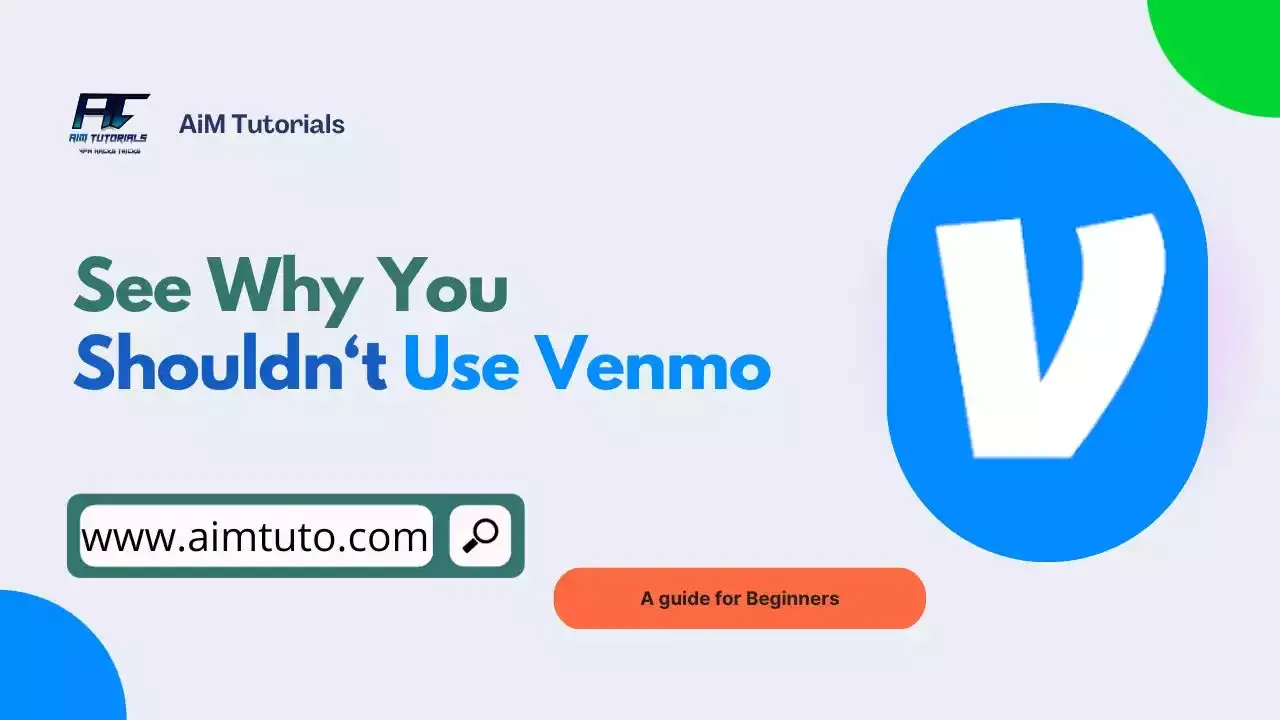
Digital payment services are becoming popular, and while they offer convenience, there's always at least a downside to using them.
Venmo, for example, is the second most popular payment service in the US, and most of us love using it. We all know about its convenience because that's mainly advertised, but do you know about its downsides? I heavily doubt about that.
In this guide, I'll discuss the reasons why you shouldn't use Venmo.
Table of Contents
Why You Shouldn't Use Venmo
There are many reasons why you shouldn't use Venmo, which include:
1. Risk of Getting Scammed
Venmo is a popular payment service and this is exactly what draws users with bad intentions to the platform. In fact, over 83% of Americans have reported being scammed or targeted by fraudsters when using apps like Venmo.
Using a digital payment app Venmo comes with convenience but also comes with risk especially when it comes to scams. Venmo is more like a social networking app, so you'll always come across strangers on the app including, those with good intentions and those with bad intentions. This is typically one of the major reasons why you shouldn't use Venmo.
You should always be cautious when doing business on Venmo, which is why Venmo recommends customers only do business with people they know and trust.
2. Privacy Concerns
Unlike traditional payment methods, Venmo's default setting makes all peer-to-peer transactions public, except for the payment amount. This means that anyone with a Venmo account can see your Venmo transactions, potentially exposing all of your sensitive information to anyone on Venmo.
Of course, Venmo lets you change this default setting from your account profile but this lack of privacy raises serious concerns about data security and the potential for tracking and data mining.
3. Limited Customer Support: A Frustrating Experience
Customer support is one of the most crucial aspects when dealing when handling your finances and that goes with both traditional and digital infrastructures.
Venmo's customer support has been consistently criticized for its slow response times and lack of resolution.
If you go through user reviews on social platforms like Reddit and Quora, you'll find out that many of them have reported facing difficulties in reaching out to Venmo for assistance with account issues or transaction disputes
This lack of responsive customer support can be extremely frustrating, especially when dealing with financial matters that require prompt attention such as accidental payments—they typically ignore you in most cases.
As for identity verification, I can't say they're the best at this since they take longer time to get you through as compared to other payment services like Cash App.
4. Don't Use Venmo As A Bank
If your primary reason for using Venmo is to replace your traditional bank—that could be a really bad idea—even the Consumer Financial Protection Bureau advises against such practice. Personally, I discourage you from doing that. Unlike traditional banks, payment services such as Venmo are more often vulnerable to scams.
Again, unlike with traditional banks, there's no guarantee that your funds on Venmo are FDIC-insured. Most banks nowadays are backed up by FDIC insurance and this should cover your funds in case the bank fails—but if Venmo fails, your money is probably gone.
Why You Shouldn't Use Venmo For Business
Using Venmo for business comes with a couple of drawbacks, some of which include potential tax issues and privacy concerns. If you're using your personal Venmo account for your business, you'd typically be exposing your personal information, which is not good for business and is equally prohibited by Venmo.
Final Thoughts
While Venmo's ease of use and social networking features make it appealing for casual transactions, its drawbacks far outweigh its benefits for managing your finances. The privacy concerns, limited customer support, and security risks make Venmo a less-than-ideal choice for your primary payment needs.
Instead, consider traditional payment methods like bank accounts, credit cards, or more secure mobile payment options that offer better protection, transparency, and customer support.